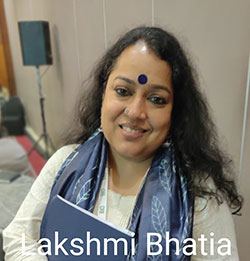FW
"In order to improve soil health, Wrangler works with scientists and specialists to implement techniques such as no-till, cover crops, and crop and grazing rotations to supplement organic matter and microbial organisms in the ground. These practices lead to higher yields for farmers and reduce associated carbon emissions"
 Having realized environmental and social stewardship as a key to success, denim brand Wrangler aims to reduce its environmental impact of its apparels by creating a cradle to cradle supply chain. The brand is investing a huge amount of capital to decipher new ways to improve soil health, water usage and dying techniques, and to nurture the next generation of farming.
Having realized environmental and social stewardship as a key to success, denim brand Wrangler aims to reduce its environmental impact of its apparels by creating a cradle to cradle supply chain. The brand is investing a huge amount of capital to decipher new ways to improve soil health, water usage and dying techniques, and to nurture the next generation of farming.
In order to improve soil health, Wrangler works with scientists and specialists to implement techniques such as no-till, cover crops, and crop and grazing rotations to supplement organic matter and microbial organisms in the ground. These practices lead to higher yields for farmers and reduce associated carbon emissions. They also help preserve natural habitats and biodiversity.
Wrangler also shares its internal findings with future leaders. Recently Wrangler held a Land Stewardship Conference for students at its Greensboro headquarters in partnership with the National Future Farmers of America, North Carolina, and the USDA’s National Resources Conservation Service (NRCS).
Initiatives to reduce negative impact of cotton
Besides improving soil health, Wrangler is also committed to reducing the negative impact of cotton industry. For this, it has started a sustainable cotton coalition in 2017. The coalition includes partners such as Cotton Inc., Soil Health Institute, the E3 growing platform, Field To Market, Texas Alliance for Water Conservation, The Nature Conservancy, North Carolina State University, the NRCS, among others. This helps Wrangler to produce more sustainable cotton. In 2020, the company aims to help cotton farmers to implement these best practices across soil health, water management, etc. 
Wrangler is also an active member of the Better Cotton Initiative (BCI), which works to improve environmental and social practices in the global cotton industry. The Wrangler and its partner brand, Lee purchased around 8,000 mt of BCI-certified cotton in just two years. And by 2025, it has plans to reduce the impact of primary materials 35 per cent.
Water conservation technologies
Meanwhile Wrangler is also implementing water-conservation technologies in its manufacturing plants. The brand aims to reduce water consumption by 20 per cent at all finishing facilities by 2020. This will be achieved by implementing techniques such as changing the way it applies detergent in the finishing process. The company also uses efficiency measures such as water pressure and fixture best practice, and is working on water recycling and cleaning strategies such as microorganism filtration. These practices led to some of its manufacturing facilities using 45 percent recycled water.
Innovative sustainable dyeing solutions
Wrangler also leverages its position to create innovative sustainable dyeing solutions. And is also exploring foam dyes in partnership with Texas Tech University and Tejidos Royo. For this, it is collaborating with Stony Creek Colors, which uses natural indigo dyes. The brand uses Stony Creek Colors’ natural indigo in its 27406 collection and plans to explore further collaboration. Such environmentally conscious innovation not only improves its sustainability profile, it also advances its brand image and bottom line.
Guiding its business through these sustainability initiatives, Wrangler aims to drive long-term growth for the company in a marketplace that demands truly responsible practices.
"To cater to this demand of their consumers, GST continuously invests in new technologies to ensure top performance and sustainability of their products. The group has laboratories close to its factories to customise the testing of its products It can also provide fast lab testing and adapted onsite testing, helping with the right sampling frequency and optimisation of tests"
 Often, activewear companies find it difficult to balance consumers’ heightened expectations with compliance demands. However, SgT Group has been effectively balancing these two goals by offering a range of quality management solutions for clothing and textile product manufacturers. The group believes it is important for such companies to find the right factory that has the required process for this type of garments. These brands also need to ensure that they provide the benefits listed on the hangtag of an active wear garment, such as UV protection, moisture management, or anti-bacterial properties.
Often, activewear companies find it difficult to balance consumers’ heightened expectations with compliance demands. However, SgT Group has been effectively balancing these two goals by offering a range of quality management solutions for clothing and textile product manufacturers. The group believes it is important for such companies to find the right factory that has the required process for this type of garments. These brands also need to ensure that they provide the benefits listed on the hangtag of an active wear garment, such as UV protection, moisture management, or anti-bacterial properties.
On the ground approach to ensure performance
Another approach that the group advises is to have a boots-on-the-ground approach to ensure performance and compliance. The group’s teams visit fabric mills and related setups almost every week for engineering and supporting the various processes and applications. The group also participates in all major conferences and machinery and R&D events.
It also works closely with clients’ R&D departments to assess risks and address them during the materials development and sourcing process. The group provides upstream quality solutions, focusing specifically on raw materials, to identify and prevent issues before they reach the production lines, allowing brands to save time and money.
Technology innovation for sustainability
An important value that SGT upholds is innovation. The group believes as their consumers expect improved performance from them, activewear brands have to be more innovative than their fashion counterparts. To cater to this demand of their consumers, GST continuously invests in new technologies to ensure top performance and sustainability of their products. The group has laboratories close to its factories to customise the testing of its products It can also provide fast lab testing and adapted onsite testing, helping with the right sampling frequency and optimisation of tests.
These strict rules challenge its team and partner clients to develop new performance tech to a degree of excellence right off the bat. The group uses its on the ground’ experience to help brands build and maintain credibility thanks to clear communication—overcoming the language barrier with local teams placed all over the world—and accompanying suppliers through ongoing development and improvement in terms of quality.
SgT also incorporates sustainability in its activewear though the use of eco-safe materials, like wool and bamboo. Besides, the company encourages eco-focused product development in its partner brands. The company hopes that as a new influx of cash in the activewear market will enable textile developers to introduce new eco-safe products that don’t compromise on the performance front.
 Any industry that hopes to prosper has to put the welfare of its workers on par with business profitability besides measuring the impact of its operations on the environment and sustainability.
Any industry that hopes to prosper has to put the welfare of its workers on par with business profitability besides measuring the impact of its operations on the environment and sustainability.
To achieve this, “the industry needs to use cutting-edge technologies. It needs to incorporate innovative technologies into its operations. Brands should manage their supply chains in an efficient and transparent ways,” says Lakshmi Bhatia.
The industry also needs to realise the importance of having smart, happy, confident women in its workforce. “We need to support the informal sector which employs a large number of women. We can do a lot more in terms of value addition. However, we need to first tap into potential of the domestic market,” adds Bhatia.
Fast Retailing will soon open its first Uniqlo store in Vietnam as the company forays into the sixth market in Southeast Asia which is also one of the fastest growing economies in the region. Fast Retailing hopes Vietnam will drive its regional growth as consumption rises and at the same time, become a manufacturing hub for the company in the face of a prolonged U.S.-China trade war.
Located next to other fast-fashion brands H&M and Zara, Uniqlo's store in a shopping mall in Dong Khoi in Ho Chi Minh City will be one of its largest stores in Southeast Asia with a gross floor area of 3,107 sq. meters and three stories high.
Vietnam is one of the key markets for Uniqlo, which currently has more than 2,000 stores worldwide and plans to quadruple stores in Southeast Asia to 800 in 10 years. Fast Retailing hopes to increase sales by 30 per cent every year in India -- where it opened its first store in October -- Southeast Asia and Australia.
The EU Design/Fenili Group has introduced a collection of garments that feature buttons and embellishments made from corozo as well as various accessories created from this material. Corozo, commonly referred to as vegan ivory, is a 100 per cent natural product that resembles a hard resin in consistency, boasts of excellent durability and scratch resistance, and easily lends itself to dyeing. Obtained from the nuts of a palm that grows in the rainforest of Ecuador, corozo is the product of a process which does not require water for irrigation or fertilizers, resulting in a material that is fully organic and natural.
Consumers around the world are increasingly gravitating toward eco-friendly products. EU Design/Fenili Group, established in 1999, is a supplier to the North American apparel industry, producing and distributing buttons, packaging, fashion trims, and custom jewelry. It is known for its environmentally friendly procurement and production practices. A strong proponent of sustainability, the company maintains R&D centers in Italy and Hong Kong and factories in Italy, India, and China. The group takes great pride in its corporate culture, which combines a modern approach to manufacturing processes with dedication to community support and enterprise values such as accountability, loyalty, proactivity, and workplace safety.
Pakistan’s textile exports increased 2.95 per cent in the first quarter of the current fiscal year.
Shipments of knitwear and readymade garments rose in double digits during the period. The country’s textile sector exporters have been urged to adopt sustainable business processes and add green products to their range so that they can differentiate themselves from other competitors in the European market. Fairtrade, organic and/or responsible concepts in addition to complying with common sustainability standards and certification are seen as giving a competitive edge in Europe and easing market entry. Another area is value addition in producing artificial leather clothing. Another plan is to attract more buying houses to Pakistan. The country feels higher market segments are the most promising, as they allow exporters to distinguish their products. Pakistan’s exporters have also been encouraged to create their own brands as well to cater to specific niche areas in the textile sector like hospitals, hotel textiles, and safety/work wear textiles.
China, India and Vietnam are among the European Union’s major suppliers of textile products, while countries like Turkey, Italy, Portugal, and France have the advantage of being in proximity and assured timely supplies, with minimum financial cost of small inventories.
PG Denim’s turnover increased 40 per cent in 2019. The company continues to create a unique mix of products, made of collections with increasingly overlapping seasonality and theme micro-capsules. For the upcoming spring/summer 2021 season, prints and velvet effects predominate. Printed materials are restyled through the most colorful techniques, drawing inspiration from the historical traditions of Italian fabrics, where the dominant elements are floral and inspired by nature. Also, denim and velvet meet in this world, enriching each other with unique combinations including printed effects for the new range. It is a range entirely produced using viscose flock, resulting in unique garments which achieve different effects depending on the washing processes.
Studio 54 is a range which explores the connection between cotton and vinyl, crossing the traditional boundaries of indigo fabric, even though it has remained in touch with the authentic Italian tradition. Garage Denim is a line inspired by the metallic colors of cars in the 1950s and ’60s, with color pastes glittering against very dark fabric backgrounds, creating an imperceptible painted effect.
PG Denim, based in Italy, offers a range of products made using over 60 per cent recycled material (the industry average is 35 per cent). As a part of this procedure, most of the waste from the process and after use is recycled.
The global fashion industry is becoming more diverse in every respect. Just a few decades ago, there were easy to spot fashion trends that only changed once a year or even slower. Today’s fashion cycles are more distinct and short-lived. Especially millennials becoming the most important consumer group, seeing themselves as more individualistic, not following general trends set by big brands. American consumers are neither buying more, nor more expensive clothing for almost a decade now.
Clothing manufacturing has become a lot more accessible in recent years. Global supply chains for garment production moved to Asia decades ago, which made the cost of clothing go down significantly. Factories in Asian countries such as China, Vietnam and the Philippines have matured. After being dependent on large Western brands for managing their operations in the nineties, have moved on to work for themselves. Globalization has also helped tremendously to bring down shipping cost and the internet did the rest by simplifying the coordination. It is definitely possible to start a clothing company from anywhere these days. Abolishing the minimum order requirements by more streamlined processes has since resulted in many small brands growing their business. Large minimum order quantities had scared off many aspiring entrepreneurs in the past.
India’s textile exports have increased 6.2 per cent post GST. Even after the withdrawal of concessions under the Generalised System of Preferences (GSP), India’s apparel exports to the US have risen five per cent compared to the same period last year when the duty benefits were available. India’s leather exports to the US grew by about seven per cent in the last four months.
The US-China trade war offers huge opportunities to Indian leather exporters to raise shipments to the United States. But the country faces competition from countries like Vietnam, Bangladesh and Sri Lanka who enjoy duty free access to key markets while India faces a duty disadvantage. Besides, Bangladesh and Vietnam have the benefit of scale in apparel manufacturing and a large and productive labor force.
In July 2019 the US terminated India’s designation as a beneficiary developing nation under the GSP trade program after determining that it has not assured the US that it will provide equitable and reasonable access to its markets. The textile industry in India is subject to provisions of the WTO Agreement on Subsidies and Countervailing Measures.
India’s share in world trade in textile and clothing is estimated to be 4.95 per cent. With these exports, India is ranked second among suppliers in the world.
By 2030, Lenzing plans to cut down on CO2 emissions by 50 per cent. Now a further milestone has been reached. Lenzing’s targets have been scientifically validated. Targets adopted by companies to reduce greenhouse gas emissions are considered science-based if they are in line with the level of decarbonization required to keep global temperature increase below two degrees Celsius as compared to pre-industrial temperatures. Lenzing is the first wood-based fiber producer, which has set a science-based target. Currently, 713 leading companies worldwide and nine companies in Austria have committed to science-based targets. Only 305 of them have approved science-based targets.
Lenzing looks beyond fiber and wood and strives to develop and implement better and greener ways of production throughout the whole supply chain. Lenzing is a member of the CEO Climate Leaders Group of the World Economic Forum and a signatory to the United Nations Fashion Industry Charter for Climate Action. Lenzing has been awarded the Gold CSR (Corporate Social Responsibility) status by EcoVadis, a leading international provider of business sustainability ratings. The EcoVadis Supplier Sustainability Rating ranks Lenzing among the top one per cent of companies in its industry based on assessed CSR indicators in the areas of environment, labor practices, ethics, and sustainable procurement.












